10 Essential Tips for Raising Chickens at Home
- June 21, 2024
- 0 comment
Have you ever thought about raising chickens or collecting your own fresh eggs each day? Whether you’re in an urban or suburban setting, here’s what you need to know to get started. Drawing from personal experience over several months, I’ve found that raising chickens is simpler and more rewarding than you might expect.
1. Check Local Chicken Ordinances
Before you start your backyard chicken endeavor, it’s crucial to understand and comply with the local ordinances in your urban or suburban area. With the growing popularity of chicken keeping, many cities have established specific rules to ensure that residential harmony is preserved.

These regulations typically address several key issues: they may prohibit roosters to avoid noise complaints, set minimum distances for chicken coops from neighboring properties to prevent disputes, and require permits to legally raise chickens. From my personal experience in a suburban setting, the regulations were quite reasonable, and designed to prevent any disturbance to neighbors. If you’re unsure of the local requirements, reaching out to your City Hall can provide clarity. Adhering to these rules will help lay the groundwork for a successful and hassle-free experience in raising chickens.
2. Find a Local Chicken Supplier
Starting your chicken-keeping journey is much easier when you have a reliable local supplier. Such suppliers are invaluable for beginners because they provide not only the chickens but also essential ongoing support and expertise. From my own experience, I found great help from a local store.
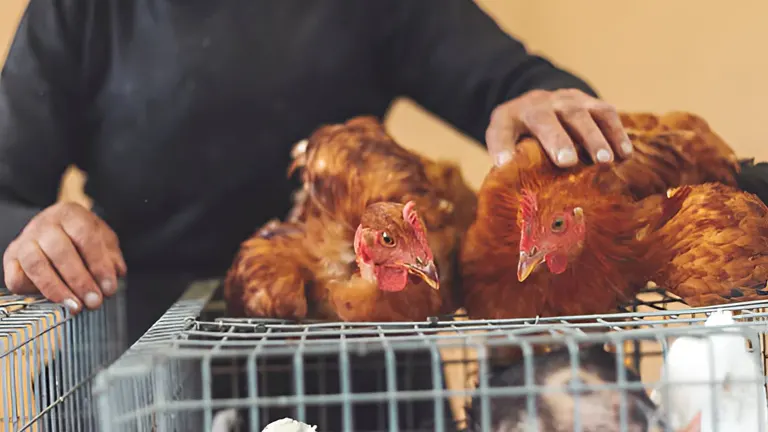
These local businesses are equipped to walk you through the setup process, address any concerns, and provide specific advice that suits your area’s agricultural needs. For anyone looking to start, I recommend doing a simple online search like “Where can I buy chickens in [your city]” to find a reputable supplier near you. Engaging with a local store can dramatically smooth out the learning curve and help solve any issues you might encounter as you get accustomed to caring for your chickens.
3. Ensure Proper Shelter
Providing a secure and comfortable shelter for your chickens is vital for their safety and overall health. When I started raising chickens, I opted for a prefabricated coop, which is a convenient choice if you’re not looking to build one from scratch. A good chicken coop should have several essential features:
Ventilation
Proper air circulation is crucial. My coop includes ample ventilation to ensure fresh air for the chickens, particularly in the area where they sleep and lay eggs.

Roosting Perches
Chickens need a comfortable place to sleep. Ensure that your coop has perches that are comfortable for the chickens to roost on.
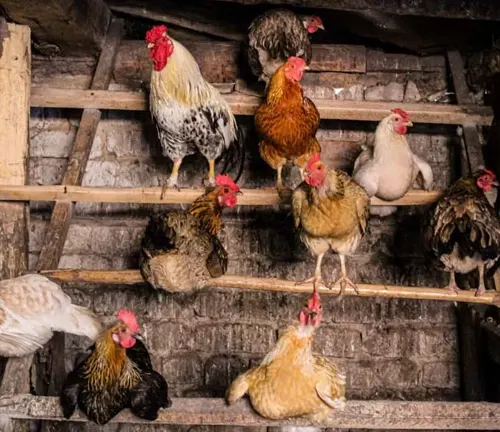
Nesting Boxes
Chickens prefer to lay their eggs in the same location daily. I placed wood shavings in the nesting boxes, which encourages this behavior and makes egg collection easier.
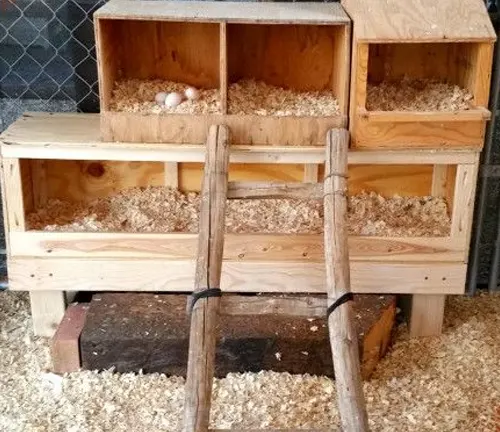
Robust Fencing
Protection against predators is essential. The coop must have sturdy fencing to prevent predators like possums and neighborhood cats from reaching the chickens.
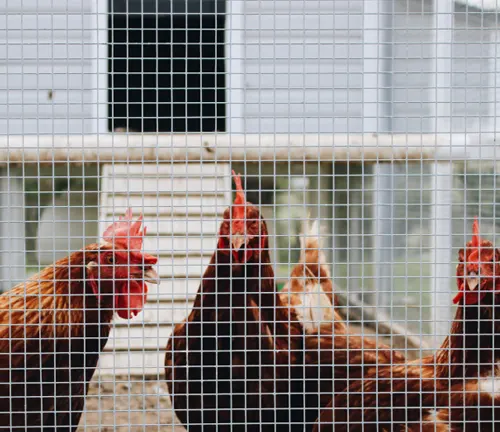
Additionally, my experience has shown that chickens will naturally return to their coop at dusk, which simplifies managing them. Ensuring the coop is secure at night is critical; every evening, I make sure to lock the gate to keep the chickens safe. Providing a well-designed shelter not only protects your chickens from the elements and predators but also contributes significantly to their wellbeing, making your chicken-raising experience more enjoyable and less stressful.
4. Diet and Nutrition
Ensuring your chickens have a balanced diet is crucial for their health and the quality of eggs they produce. The primary component of their diet should be a specially formulated chicken feed, which includes all the necessary nutrients to support their health and egg production. I make sure to keep their feeder filled and monitor it regularly as adult chickens typically need about one to one and a half cups of feed per day.
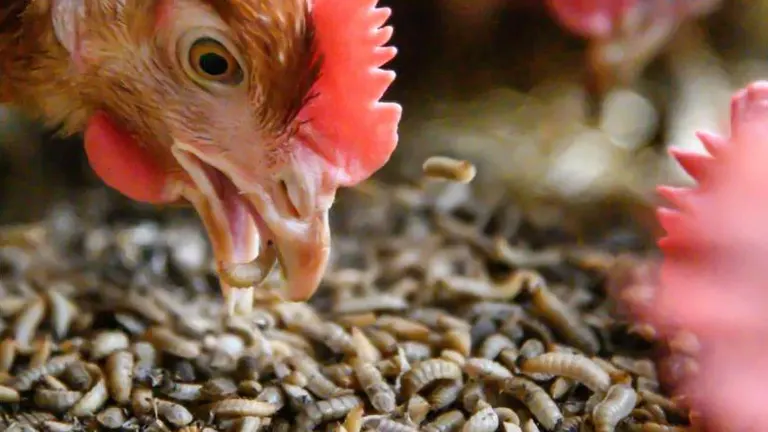
In addition to chicken feed, supplementing their diet with treats like worms can greatly enhance their nutrient intake and overall vitality. Chickens love foraging for worms, and whenever I find worms in our garden, I toss them into the chicken area. This not only satisfies their natural foraging instincts but also helps in keeping the garden pests in check.
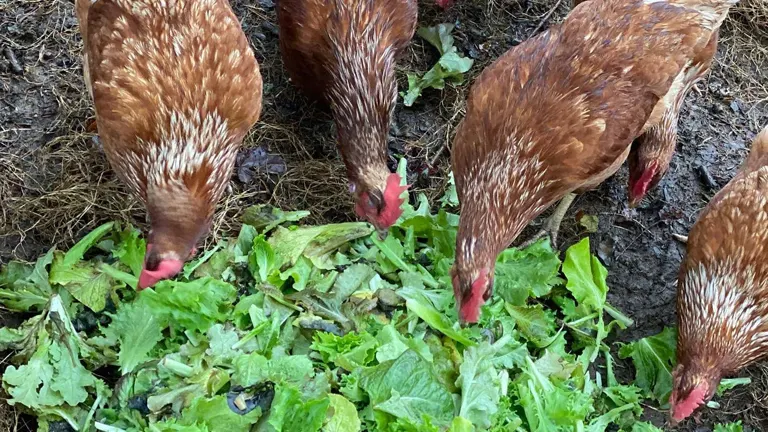
Moreover, allowing the chickens to roam in the backyard lets them consume a diverse range of nutrients. They particularly enjoy greens and will devour anything from grass to tossed salad greens. It’s a natural behavior that promotes their health and also helps in managing any bug issues in your backyard. I often supplement their diet with table scraps, including leftover fruits, vegetables, and grains, ensuring they are healthy but avoiding anything potentially harmful like junk food or raw potatoes. This approach to feeding not only ensures that my chickens are healthy but also makes them quite happy, which in turn leads to a regular supply of fresh eggs.
5. Water is Essential
Ensuring that your chickens always have access to clean water is crucial for their health and egg production. It is important to keep their water supply fresh and elevated to prevent contamination from dirt and waste. In my setup, I have elevated the water container on bricks to keep it clean, as chickens can quickly dirty their water by scratching around it. This elevation helps to minimize the risk of contamination and ensures they always have access to clean water.
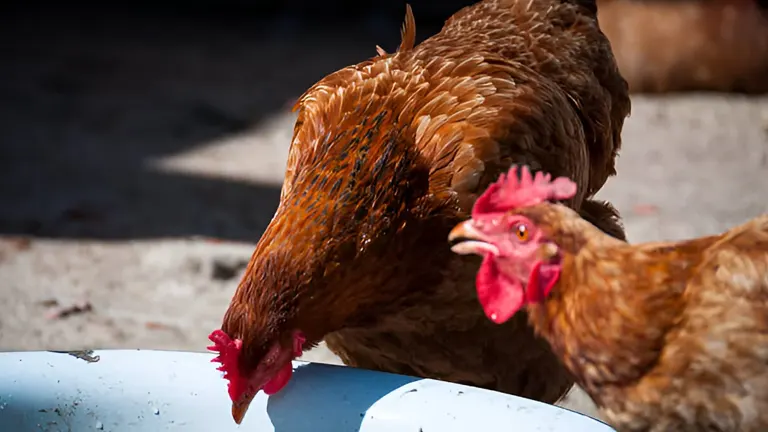
Especially in the summer, chickens consume more water due to the heat, so it’s important to regularly check and refill their water containers to keep them hydrated. Proper hydration is essential not only for their overall health but also plays a significant role in maintaining consistent egg production. If you are looking for improvements in your setup or if the current system isn’t working as well as you’d hoped, exploring different watering systems might be beneficial to ensure your chickens are always well-hydrated.
6. Provide Dust Baths
Chickens naturally bathe in dust to maintain their plumage and control parasites. In my setup, since the backyard primarily consists of dirt, my chickens frequently indulge in dust baths, which is essential for their hygiene. If you don’t have natural fine dirt or sandy soil in your chicken area, creating a designated dust bath area becomes necessary.

You can fill a shallow box or a designated corner of their enclosure with commercial chicken dust or a mix of sand and diatomaceous earth to simulate their natural environment. This not only helps keep their feathers clean but also aids in parasite control. Offering these dust baths helps ensure your chickens maintain healthy skin and feathers, contributing to their overall well-being and cleanliness.
7. Manage Waste
Effective waste management is essential when raising chickens. One significant aspect of waste management is dealing with chicken manure, which, while not typically odorous, can attract flies if not handled correctly. From my experience, it’s crucial to routinely clean and manage the waste to prevent fly infestation.

Chicken manure is highly beneficial for composting due to its rich nutrient content, which significantly enriches soil quality. However, it should be composted before use in the garden to avoid the risk of nutrient burn, which can damage plants due to the high nitrogen content. Integrating chicken waste into your composting routine not only maintains a healthier and cleaner environment for the chickens but also enhances your garden soil, turning a potential waste problem into a beneficial resource.
8. Temperature Control
Proper temperature regulation is crucial for chicken well-being throughout the year. In my experience, ensuring that the coop is well-shaded during the hotter months is essential as chickens can suffer in extreme heat. I’ve implemented shade cloths and positioned the coop under trees to provide ample shade, ensuring their comfort.
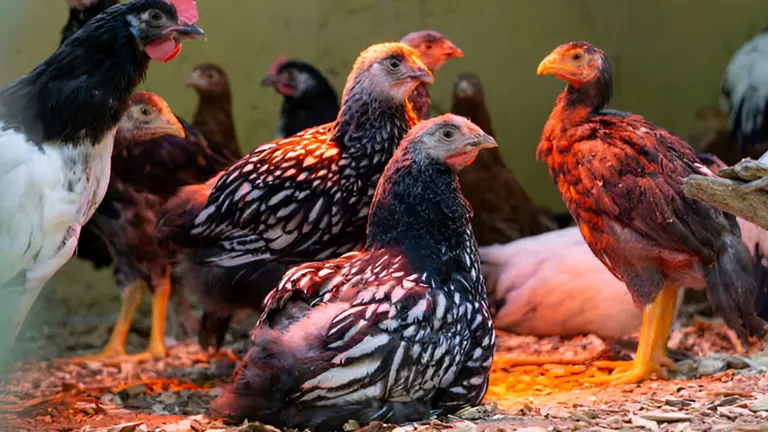
During colder months, I’ve found that using a heat lamp can be extremely beneficial, especially when temperatures drop significantly. It’s critical to install any heat sources safely to avoid hazards. By maintaining a stable temperature environment, chickens remain healthy, comfortable, and productive in terms of egg laying, even during temperature extremes.
9. Space Requirements
Maintaining sufficient space is essential for the health and well-being of chickens. From personal experience, each chicken should have about 2-3 square feet of space inside the coop. This ensures they can move comfortably and aren’t cramped, which is crucial for their physical and mental health.
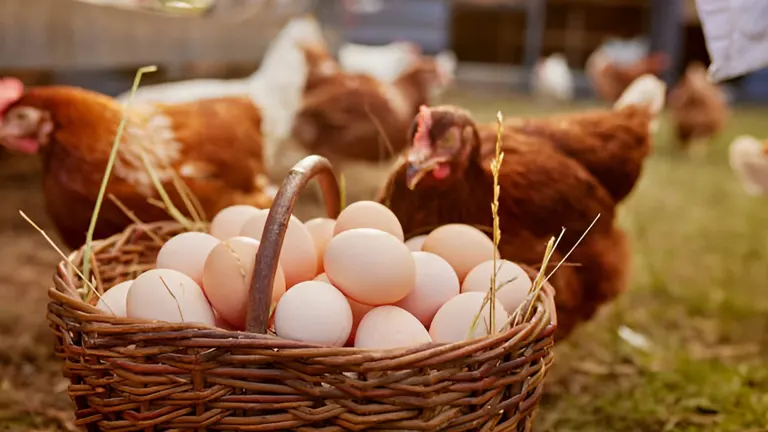
Additionally, for their outside run, providing at least 8-10 square feet per chicken has proven effective. This space allows them to exhibit natural behaviors like foraging and dust bathing, significantly reducing stress and promoting health. More space generally translates to happier chickens and better egg production. Always aim to provide as much space as possible for optimum results.
10. Just Start
Starting your journey with raising chickens can be more straightforward than it seems. My experience over the last several months has taught me that the process is not as demanding as one might anticipate. Chickens require minimal maintenance daily.
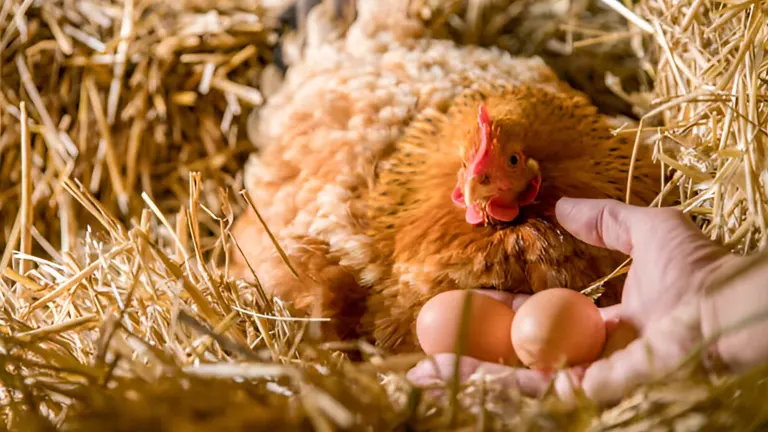
Typical daily activities involve feeding, ensuring they have access to clean water, and collecting eggs. They are largely self-reliant creatures that provide a constant supply of fresh eggs. Therefore, the key is to dive in, learn progressively, and relish the fresh produce and the joy of raising chickens. Begin with the basics, adapt through experience, and enjoy the process of integrating chickens into your lifestyle.
Feeding Guide for Chickens
Proper nutrition is essential for the health and productivity of your chickens. Here’s a detailed guide on what to feed chickens at different stages of their lives, as well as information on organic and non-GMO feed options.
- Starter Feed for Chicks: From hatch until about six weeks of age, chicks should be fed a starter feed, which is crucial for their early growth and development. This feed typically has a high protein content, about 20-24%, necessary for their rapid growth. Some starter feeds also contain amprolium, which helps prevent coccidiosis, a common intestinal disease among young birds. It’s important to provide this nutrient-rich feed to give chicks the best start in life.
- Grower Feed: As chicks transition from the brooding period, they require a grower feed from about six weeks until they are ready to lay eggs, usually around 20 weeks. Grower feed has a slightly lower protein content, typically around 16-18%, which helps sustain their growth rate without causing the rapid gains that can lead to health issues, such as leg problems. This stage is critical for developing strong, healthy chickens.
- Layer Feed: When chickens start laying eggs, usually around 20 weeks of age, their dietary needs shift again. Layer feed has a balanced protein level of around 15-18% but includes higher levels of calcium and other minerals that are essential for egg production. This calcium is crucial for strong egg shells, and the balanced nutrients support the overall health of the laying hen.
- Organic and Non-GMO Feed Options: For those who prefer to maintain an organic lifestyle or have concerns about genetically modified ingredients, organic and non-GMO feed options are available. These feeds are made without synthetic pesticides and genetically modified organisms, providing a more natural diet for chickens. These products are typically available at specialty feed stores or online, and they cater to a growing demand for sustainable and environmentally friendly farming practices.
- General Feeding Tips: In addition to formulated feeds, allowing chickens to forage can greatly enhance their diet. Chickens benefit from pecking around in a safe yard where they can consume insects, grass, and grit naturally. Offering occasional treats like mealworms, seeds, and small scraps of fruits and vegetables can add variety to their diet but should be given in moderation to avoid nutritional imbalances. Lastly, ensuring that chickens have constant access to fresh, clean water is critical for their health and well-being, as dehydration can lead to serious health issues quickly.
By following these guidelines, you can ensure that your chickens receive the appropriate nutrition through all stages of their life, supporting optimal health and productivity.
Conclusion
Raising chickens at home is a surprisingly easy and rewarding endeavor that provides a steady supply of fresh eggs and the pleasure of caring for these delightful animals. By following the outlined tips, you can successfully set up a thriving home coop. From ensuring proper shelter and nutrition to managing temperature and space, each step contributes to the health and happiness of your chickens. With minimal daily maintenance primarily focused on feeding and egg collection, you can enjoy the benefits of fresh, home-grown eggs every day. This not only offers nutritional advantages but also the satisfaction of being more self-sufficient.
FAQs
- What is the minimum number of chickens I should start with?
Chickens are social animals and thrive in groups, so it’s recommended to start with at least three to five chickens to keep them happy and healthy. - How often should I clean the chicken coop?
Regular cleaning is crucial to prevent diseases and keep your chickens healthy. Aim to do a thorough cleaning of the coop every two weeks and more frequent spot cleaning as needed. - Can chickens eat kitchen scraps?
Yes, chickens can eat most kitchen scraps, but avoid giving them anything moldy, salty, or foods like chocolate, caffeine, or avocado. Vegetables, fruits, and grains are generally safe. - Do I need a rooster for the hens to lay eggs?
No, hens will lay eggs without a rooster. However, if you want eggs to hatch into chicks, a rooster is necessary for fertilization. - What should I do if my chicken gets sick?
Isolate the sick chicken to prevent the potential spread of disease and consult a veterinarian who specializes in poultry. It’s important to act quickly to address health issues in chickens. - How do I protect my chickens from predators?
Ensure your coop is secure with fencing buried underground to prevent digging predators. Consider automatic doors for the coop that close at dusk and use motion-activated lights to deter nocturnal predators. - What are the best breeds for beginners?
Breeds like the Rhode Island Red, Sussex, and Buff Orpington are known for their hardiness and ease of care, making them excellent choices for new chicken keepers.
We hope you found this guide to raising chickens both informative and encouraging! Are there specific tips you found useful, or do you have any of your own experiences to share? Maybe you have a question that wasn’t covered? Drop your thoughts and questions in the comments below. Let’s keep the conversation going and help each other create thriving backyard flocks!

Edward Smith
Forestry AuthorWoodworking is about more than crafting; it's a harmonious connection with nature, mastering tools, and preserving our environment. I'm here to share my knowledge and experiences with you, forging a future where we can embrace wood's beauty and utility while safeguarding our forests' health and diversity.













Leave your comment